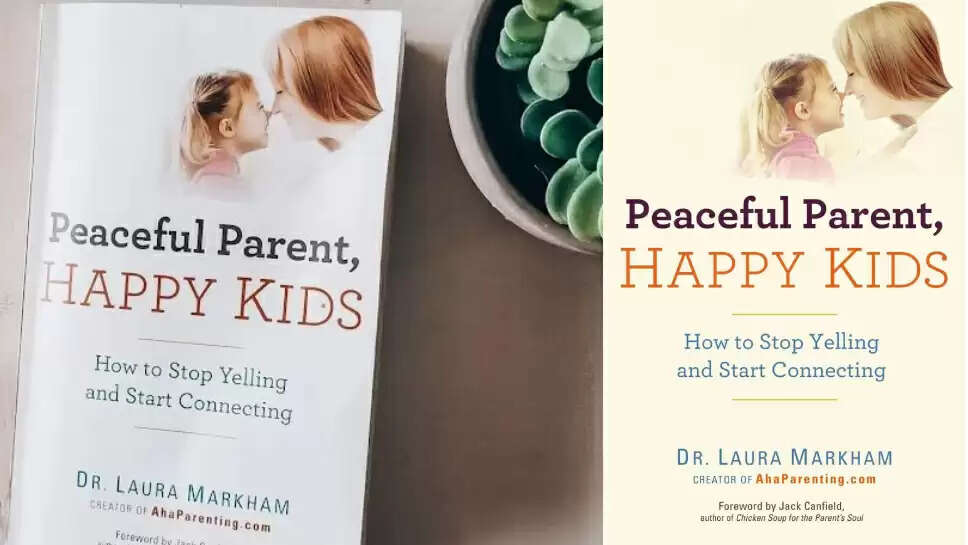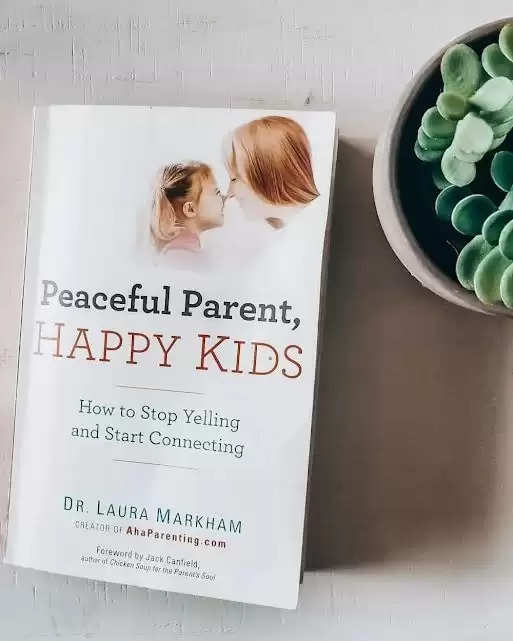Lessons from Peaceful Parent, Happy Kids: Insights and Strategies by Dr. Laura Markham

1. Connection is the Foundation
The foundation of good parenting, according to Dr. Markham, is a deep emotional connection with one's children. Listening attentively, showing compassion, and spending quality time together all work to strengthen this bond. We demonstrate to our children that what they have to say is important when we pay attention when they speak. In addition to hearing what they have to say, it is important to put yourself in their shoes and try to comprehend how they are feeling. The best way to deepen this connection and cultivate love and trust is to spend quality time together, undisturbed. When two people have a strong bond, it's easier to open up and work through problems together. When kids have a strong bond with their parents, they are more inclined to talk about what's bothering them and work together to find answers.
2. Emotions Are Valid
Recognising and supporting our kids' feelings is one of the main ideas that Dr. Markham pushes. It is important to understand and acknowledge their thoughts instead of ignoring or dismissing them. If a kid is upset because of a cancelled playdate, we shouldn't brush it off; instead, we should acknowledge their sadness by saying something like, "I know you're really sad about this." You can feel that way. This method helps kids feel understood and supported, which is very important for their mental growth. When we validate our kids' emotions, it doesn't mean we have to fix everything. It just means we are there to help and understand them as they go through their feelings.
3. Discipline with Love and Limits
Dr. Markham changes the way punishment is thought of so that it is used to teach instead of punish. Setting clear, constant rules with love and respect is what discipline is all about teaching kids how to be responsible. For instance, when a child breaks a rule, don't get angry. Instead, carefully explain why the rule is important and talk about what will happen if they don't follow it. This method helps kids become more self-disciplined and learn from their mistakes. When we treat our kids with love and respect, we show them that rules are meant to help them grow, not to scare or punish them.
4. Positive Communication
Parents who can talk to their kids well are able to keep the peace. Parents should be careful with their words and only use positive, helpful language, says Dr. Markham. Instead of pointing fingers or criticising, it's better to talk about solutions and support good behaviour. Say something like, "Let's make a plan to clean up the toys together" instead of, "You never pick up your toys." This method helps kids learn how to talk to each other in a healthy way and how to solve problems without fighting. By communicating in a healthy way ourselves, we give our kids the tools they need to talk about their feelings in a healthy way and work out their differences.
5. Empowerment Through Autonomy
Dr. Markham stresses how important it is to let kids make decisions and take on responsibilities that are right for their age. Children gain confidence and learn how to think critically when they are involved in making decisions and their choices are respected. For example, letting a kid pick out their own clothes or activities for the weekend as long as they don't go too far can help them become more independent. When kids are allowed to make choices, they learn about responsibility and feel like they have power over their lives. This freedom also helps them learn how to solve problems and understand the effects of the choices they make.
6. Mindful Parenting
Mindfulness is another important part of Dr. Markham's method. We can better meet our kids' needs when we are fully present and let go of other things that are bothering us. Being a mindful parent means keeping calm and in control, even when things get tough. When we practise mindfulness, we show our kids how to control their emotions and make the world a calm place where they can grow. Taking in the joy of being a parent and focussing on the present help us connect with our kids better and deal with problems as parents more easily.
7. Play and Laughter
Play and laughs are great ways for parents and kids to bond, says Dr. Markham. Adding fun to daily activities not only makes the relationship stronger, but it also helps kids be creative, solve problems, and handle their emotions. Making time for fun and laughter can turn daily events into chances to connect and learn, whether it's through games, stories, or just interacting in a playful way. The act of playing is not only fun, but also important for good growth and a happy family life.
8. Self-Care for Parents
Finally, Dr. Markham highlights the importance of self-care for parents. Taking care of ourselves is essential for maintaining a peaceful and harmonious home environment. When parents prioritize their well-being and seek support when needed, they are better equipped to be present, patient, and compassionate. Self-care can take many forms, from regular exercise and relaxation to seeking support from friends or professionals. By nurturing our own health and happiness, we create a positive environment that benefits both ourselves and our children.
In conclusion, Dr. Laura Markham's book "Peaceful Parent, Happy Kids" is a complete guide to making your family a loving and peaceful place to be. Parents can improve their kids' communication, mental health, and relationships with them by following these eight key ideas. The information in this book is very helpful for parents who want to improve their methods and make their family life more peaceful and happy.

Book: https://amzn.to/3SDmyrI
--
-- Class Dismissed --
You Might Also Like: 10 Lessons from "What My Mother and I Don't Talk About" by Michele Filgate
